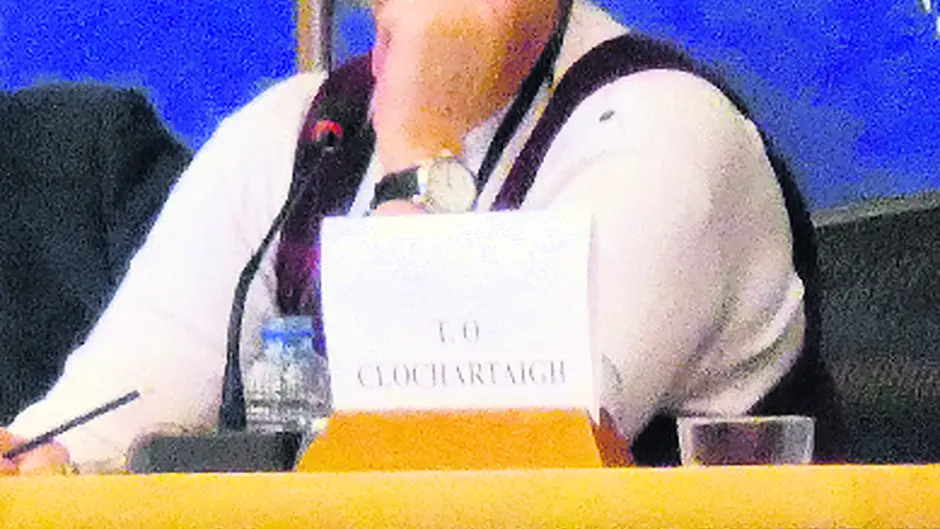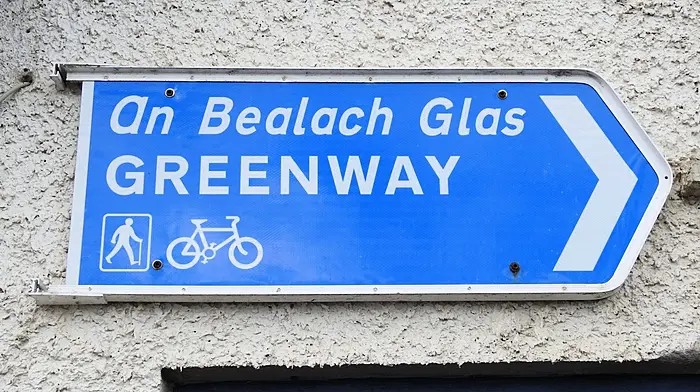Sinn Féin MEP Liadh Ní Riada has warned that small Irish coastal communities will soon become little more than open air museums unless action is taken to safeguard smaller fishing fleets and invest in their growth.
SINN Féin MEP Liadh Ní Riada has warned that small Irish coastal communities will soon become little more than open air museums unless action is taken to safeguard smaller fishing fleets and invest in their growth.
The Ireland South MEP made the claim at a fisheries conference she hosted in the European Parliament last week when MEPs from across Europe joined Ms Ní Riada, along with representatives from the Irish and European fishing industries, as well as her party colleagues, TD Martin Kenny, Senators Rose Conway and Trevor Ó Clochartaigh, to discuss the crisis facing small-scale fishing communities.
Among the issues discussed was the havoc being wreaked on the Irish industry by factory ships and super trawlers, which Ms Ni Riada, who sits on the EU Fisheries Committee, described as ‘floating factories of destruction, environmental decay and symbols of corporate interference and all that is wrong with the quota system.
‘They have nets larger than Croke Park, which trawl continuously, hoovering up everything they come into contact with, including dolphins, sharks and all manner of marine life. They then discard less valuable fish in favour of the more profititable catch.
She warned: ‘If indigenous fishing industries are to have any hope of surviving, then International Transferable Quotas and relative stability have to be reviewed.
‘Around 1.2 million tonnes of fish are caught annually in Irish waters yet only some 20 per cent of the total catch is allocated to us, the rest of the 80% usually goes abroad. Out of the 250,000 tonnes that goes to Irish vessels, just 50,000 tonnes are actually processed in Ireland and it is from processing where the value is added.
‘At the moment, the Irish ind ustry is only processing around 5% of total catch in Irish waters,’ Ms Ní Riada claimed. ‘Vessels who land all their Atlantic catches in Irish waters should have to process in Ireland.’
She added that huge vessels were able to maintain this monopoly due to ‘a cosy relationship’ with the authorities.
‘Foreign super-trawlers and wealthy, large-scale industrial vessel owners have benefited from a cosy relationship with national authorities, many of which are working with, if not for, these powerful entities whose significant business interests give them unaccountable political sway.
‘In Ireland, they have created a tiny cartel, which has isolated and impoverished the rest of our ordinary fishermen,’ she stated. ‘More often than not they are not inspected properly, blind eyes are turned while our own smaller fleets face the full weight of the law. ‘This neglect, and the failure by our governments to protect and represent the interests and well-being of our coastal and rural communities, has resulted in the devastation of the livelihoods of small-scale fishermen, their families and the communities they are the bedrock of.’
Concern around the impact of Brexit was also raised with Ms Ní Riada, insisting Ireland must not bear the brunt of fleets displaced from British waters.
‘If Britain exercises full control of its EEZ it could be the end of the Irish fishing industry as we know it unless the concept of “Relative Stability,” underpinning the CFP since 1992, is revised,’ she said.
‘This also entails that Ireland will have over 33% of the most productive fishing grounds in the EU. What will happen to the displaced EU vessels who will no longer have access to British waters?
‘Under no circumstances can these fleets be transferred to Irish waters,’ she added.
‘Fishermen have been sold out by the political elite who have no understanding of the reality of the industry. They have no legitimate right or mandate to dictate terms to us,’ Ms Ní Riada concluded.








